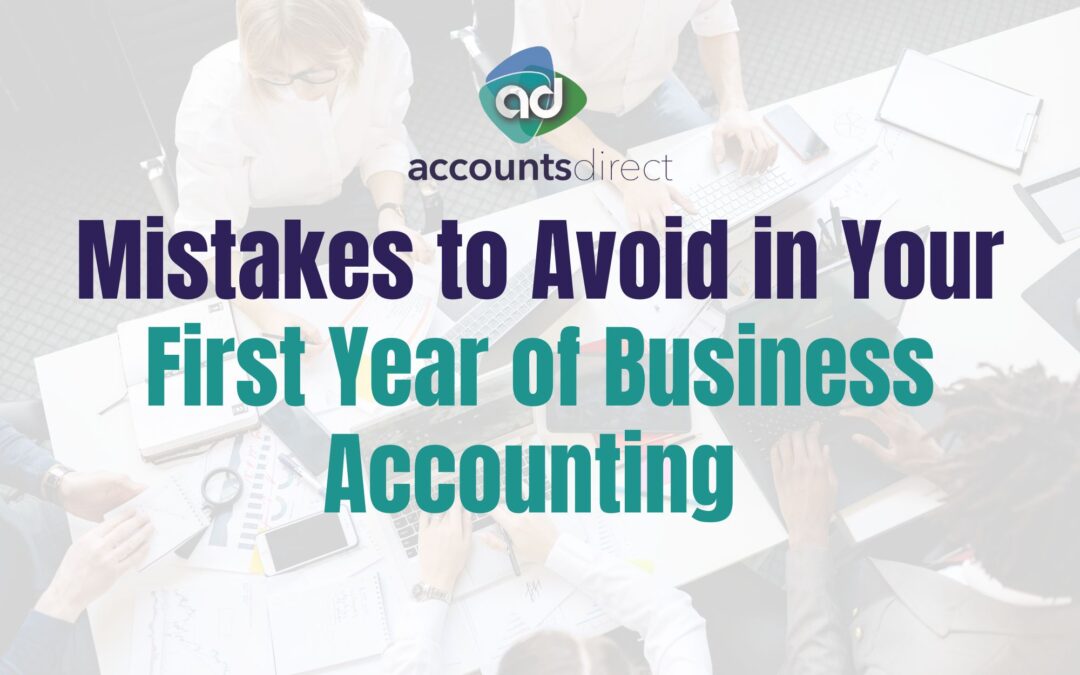Embarking on a new business venture is both thrilling and daunting. The first year is often a whirlwind of activities: acquiring clients, developing products, managing operations, and setting the foundation for growth. Amidst this frenzy, one aspect that can’t be overlooked is business accounting.
A sound financial strategy ensures your business’s longevity. However, many startups fall into common accounting pitfalls. Here’s a guide on what to watch out for in your first year of business accounting.
Neglecting Proper Record-Keeping
Maintaining accurate financial records is not just about compliance – it’s essential for informed decision-making. Without an organized system, tracking expenses, revenue, and profitability becomes a Herculean task.
Solution: Invest in a robust accounting system or software.
Schedule regular intervals, be it weekly or monthly, to update and review your financial records.
Mixing Personal and Business Finances
This is one of the most frequent pitfalls new business owners encounter. Using personal accounts for business transactions blurs financial boundaries, complicating tax filings and expense tracking.
Solution: Open a separate business bank account and credit card.
Ensure all business transactions, no matter how trivial, flow through these.
Not Staying Tax Compliant
Every business, no matter its size, has tax obligations. Ignorance or negligence in this regard can lead to hefty penalties and damage your business’s reputation.
Solution: Familiarise yourself with tax obligations specific to your business structure and industry.
Consider consulting with a tax professional to ensure you’re on the right track.
Overlooking Small Expenses
While large expenditures are hard to miss, the minor day-to-day expenses can slip through unnoticed. Over time, these can accumulate, impacting your bottom line.
Solution: Keep a dedicated business expense log.
Save all receipts and consider using expense tracking software or apps.
Not Setting a Budget
Without a budget, you’re navigating the financial realm of your business blindly. A budget serves as a financial blueprint, guiding you in making expenditure decisions.
Solution: Establish a detailed budget at the outset.
Regularly review and adjust as necessary, based on actual income and expenses.
Failing to Reconcile Bank Statements
Bank reconciliations ensure that your financial records align with your bank statements. Ignoring this can lead to undetected discrepancies or fraudulent activities.
Solution: Dedicate time each month to match your accounting records with your bank statements.
Investigate any disparities immediately.
Avoiding Professional Help
Many entrepreneurs try to handle accounting on their own to save costs. While commendable, this DIY approach can lead to oversight of critical financial nuances.
Solution: Consider hiring an accountant or bookkeeper, even if it’s on a part-time basis.
Their expertise can save you money in the long run by ensuring accuracy and tax efficiency.
Not Planning for Cash Flow
Profit does not equate to positive cash flow. Many profitable businesses struggle because they don’t have enough cash on hand to cover immediate expenses.
Solution: Regularly update a cash flow forecast.
This will help you anticipate periods of cash shortages and plan accordingly.
Underestimating Financial Reports
Financial reports, like income statements, balance sheets, and cash flow statements, provide a snapshot of your business’s health. Ignoring them means missing out on vital insights.
Solution: Familiarise yourself with the basics of financial reports.
Review them regularly to gauge business performance and make informed decisions.
Overlooking the Importance of Payroll
Mistakes in payroll, be it incorrect calculations or late payments, can lead to disgruntled employees and legal repercussions.
Solution: If handling payroll in-house, ensure you understand all legal obligations and use reliable software.
Alternatively, consider outsourcing to a dedicated payroll service.
–
Your first year in business is a learning curve, and while mistakes are part of the journey, some can have lasting repercussions. By being aware of common accounting pitfalls and proactively addressing them, you lay the groundwork for financial stability and success. Remember, in the realm of business, knowledge is not just power; it’s the key to sustainability.

